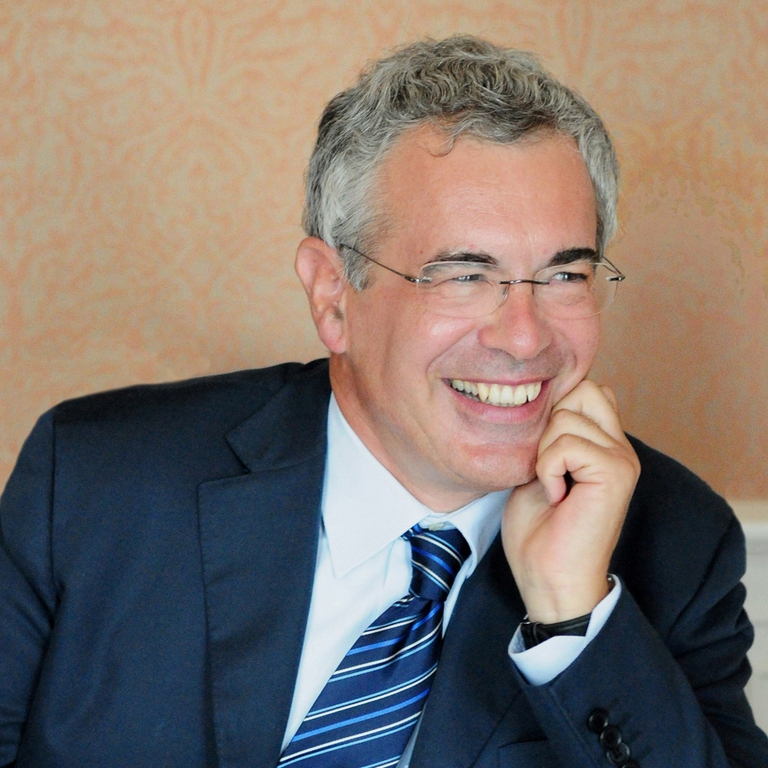
The 26th edition of the United Nations Climate Change Conference, COP26, will be held in Glasgow, Scotland in November 2020. The pre-COP will take place in Milan, Italy.
He’s one of the most important Italian economists in the world, as well as director of the International Centre for Climate Governance (ICCG). That’s why Carlo Carraro was chosen by the Intergovernmental Panel on Climate Change (IPCC), depending upon the United Nations, to draw up the renowned reports on global warming that politicians should follow to adopt concrete
He’s one of the most important Italian economists in the world, as well as director of the International Centre for Climate Governance (ICCG). That’s why Carlo Carraro was chosen by the Intergovernmental Panel on Climate Change (IPCC), depending upon the United Nations, to draw up the renowned reports on global warming that politicians should follow to adopt concrete measures for the reduction of CO2 emissions. Carraro has a different vision about what we should expect from the conference to take place in Paris. He says no to the declarations that it’ll be a failure, no “either in or out”, the important thing is that at COP21 national delegates will reach a broad agreement.
For many people, including the Italian Ministry of the Environment Gian Luca Galletti, the Parisian conference on climate (COP21) is a crucial event that will definitively be a success. Do you agree?
In Paris there will be a number of emission pledges made by the UNFCCC member countries that won’t be enough to contain the problem of climate change. But this shouldn’t be considered a failure, because COP21’s goal is not that of signing an ambitious agreement but rather a very broad one. In the past, the number of countries that adopted concrete measures to fight global warming was limited. Some of these countries even went back on their pledges. Consider the United States, Canada or Japan who have never applied the Kyoto Protocol. In Paris, on the contrary, more countries will sign the agreement thanks to this new bottom-up approach. 80-85% of global greenhouse gas emissions will be kept under control. But that’s not all. Containing the emissions doesn’t mean reducing them, that’s why we mustn’t complain if at the conference the parties won’t meet a satisfying goal for cutting emissions. Central to this agreement is its broadness and a governance system that will apply, correct and improve the goals set, in order to become more and more ambitious.
What should we expect from the emerging countries such as China and India that are the top CO2 emitters in the world?
If China will comply with its pledge of peaking emissions by 2030 and if the industrialised countries will honour their objectives, we will be on the right track to reduce global average temperature rise below 2 degrees Celsius, as set in the 2009 conference on climate that took place in Copenhagen. The real question is: what we will do after 2030? The countries are not far from meet the goal of 2 degrees within 15 years.
Climate change has always seemed a technical issue. Today, instead, a number of popular people are dealing with the issue. Pope Francis with his encyclical, Naomi Klein with her last book. How does this renewed interest will influence the negotiations?
Actually, the negotiations are technically closed, so the influence will be basically null. But the pressure of the civil society will probably influence the way the countries will act after Paris. Once the governments will commit themselves to reduce emissions, it’s important to make sure that they’ll comply with their pledges. Social, ethical and religious pressure is crucial after the conference. The biggest danger is that once Paris will be away from the spotlight, the world would forget about the goals set up. Paris is not the end, it’s just the start.
Siamo anche su WhatsApp. Segui il canale ufficiale LifeGate per restare aggiornata, aggiornato sulle ultime notizie e sulle nostre attività.
![]()
Quest'opera è distribuita con Licenza Creative Commons Attribuzione - Non commerciale - Non opere derivate 4.0 Internazionale.
The 26th edition of the United Nations Climate Change Conference, COP26, will be held in Glasgow, Scotland in November 2020. The pre-COP will take place in Milan, Italy.
Thanks to activists, the voice of the world’s peoples resounded through the COP25 like an alarm bell. Governments didn’t reach the results they demanded, but their cries and messages were stronger than ever, reaching even those who weren’t in Madrid.
Climate change poses a risk for millions. However, women are the most vulnerable to its negative consequences: a few simple considerations by the Italian Climate Network help us perceive the global implications of this.
The COP25 ended two days late and with very few steps ahead made. Climate negotiations in 2020 will be an uphill battle as political will clearly seems to be lacking, once again.
The last ten years have been the most “exceptional” and hottest decade ever, with extreme weather hitting people and ecosystems harder and more frequently. 2019 is also on course to becoming the second or third hottest year since records began.
Unite Behind the Science: this was the title of the conference held at the COP25 on 10 December. Greta Thunberg’s presence filled the arena, but this time it was scientists’ turn to speak.
25,000 delegates meet for the COP25 from 2 to 13 December. What can we hope this UN climate change conference, whose venue was changed from Santiago de Chile to Madrid, will achieve?
100 eminent people from all over the world, including Vandana Shiva, Naomi Klein and Noam Chomsky, have signed an open letter after the disappointing results of the COP24. A call-to-arms for climate against world leaders’ indifference.
The outcome of the COP24 in Katowice left many unsatisfied. Greta Thunberg, a young Swedish environmental activist, gave a harsh, heartfelt speech addressing world leaders.








